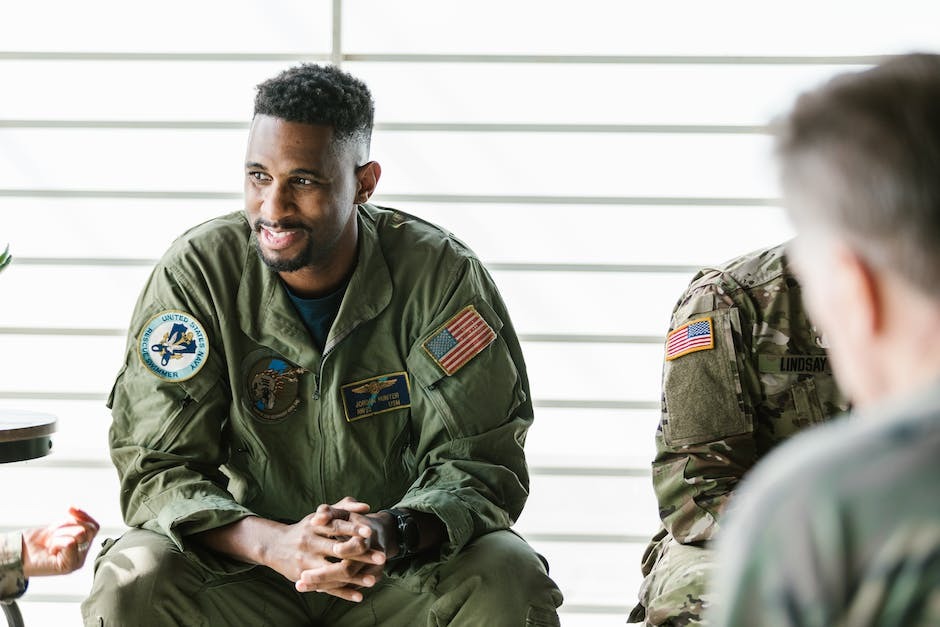Post-Traumatic Growth: Veterans, Recovery and Hope
Trauma comes in many forms, but so does recovery. Vets who have experienced PTG are inspiring others while progressing on their own journeys

Many veterans struggle with post-traumatic stress disorder (PTSD) and substance use disorder (SUD). These issues have rightfully gained national attention, but you may be less familiar with a more encouraging phenomenon called post-traumatic growth.
Post-traumatic growth (PTG) occurs when an individual with PTSD experiences growth from their trauma to realize a more positive, constructive outlook on life and a new level of determination in their treatment.
But post-traumatic growth is not limited to those with combat or deployment experience, and anyone who has suffered with trauma or addiction can learn from it. Through post-traumatic growth, you can understand how some trauma-impacted individuals come to gain meaning from the pain of the past and find purpose in the future.
What Is Post-Traumatic Growth?
Post-traumatic growth is defined as positive personal changes that result from the survivor’s struggle to deal with trauma and its psychological consequences. This does not mean that PTG is the opposite of PTSD. Rather, it is a different response to trauma that can coexist with PTSD and allows an individual to develop from trauma and grow.
For many who struggle with addiction, trauma is the root cause. While some people may have developed PTSD, trauma can also lead to PTG, through which they may recover from a traumatic incident or event and find meaning and growth in their lives.
Those with PTSD do not always experience PTG, of course. It is not a form of treatment so much as a shift from negative views to more positive ones. While PTG cannot be taught to others, per se, it can still be highly beneficial to those struggling with PTSD and addiction. Those who have felt PTG breakthroughs can share their stories, inspiring those around them to see light in the darkness and providing hope to those still working through the thorniest parts of recovery.
Strength in Numbers: Building a Community
Building or finding a community is vital to recovery, with or without PTG in the equation. Being in an environment with others working through trauma and recovery can help put you in a better, more committed mindset as well. When you’re around people who have gone through similar struggles and have progressed far enough in their journeys to gain a positive outlook, it can help make you feel less isolated.
Recovery communities not only foster connection and support; they can also help promote healthy lifestyle changes. From a practical perspective, a community keeps you accountable and motivated. In recovery, it can be difficult to create that level of motivation and accountability on your own. When you’re in a community, there is little room to lose track of your goals, as you have others there working alongside you and propping you up.
Being in a network of like-minded individuals with similar backgrounds and goals can be a boon for those in recovery and veterans. In such communities, you can get motivated by others, feel emotional support from others and simply bond.
How PTG Stories Can Help Others: Be a Voice
How does PTG fit into recovery communities? Those who have experienced PTG firsthand do a laudable service by sharing their stories, coping strategies and thought processes with other veterans and individuals in recovery, helping the community grow as a whole and inspiring its members to push forward through their mental health conditions. Sharing stories and positive outlooks from PTG can help build resilience in recovery; it gives others some perspective to be more optimistic and purposeful. If someone else can do it, they can too.
While building a community of positive attitudes can help everyone, it also provides a wellspring of independent personal connections and opportunities for healing, both for those evolving in post-traumatic growth and others grappling with their issues in their own ways.
(For more on this, an article recently published in VA News explores the stories of three veterans who experienced PTG and how their trauma turned into growth.)
Hearing how someone who went through similar harrowing experiences came out on the other side can serve as a powerful example, providing others with the feeling of relief that they are not alone in this — and the confidence that they, too, can thrive.
Sharing experiences, finding and strengthening a community, and building yourself up as an individual are all critical to working through trauma and addiction recovery. Not only are you sharing or hearing the positives that others can achieve, you’re also building deeper connections with others. Sometimes the most meaningful hope and help comes from the friends around you.
More Help & Information
Does the 'Pink Cloud' of New Sobriety Help or Hurt? It's Complicated
The euphoria of early recovery may be fleeting, but long-lasting balance is the goal. Here's how to keep your head up through the process and handle reality with confidence.
Sobriety vs. Recovery: What's the Difference?
Are the concepts themselves up for debate? Do they require certain treatments, or abstinence from everything? It's complicated! And new ways of thinking are changing the conversation.
Now Elite NFL Players, They First Tackled Addiction | News Roundup
All Sober compiles the best of the latest headlines. Here's your addiction and recovery news for the week of Feb. 19, 2024!
Help Them Help You: Explaining Your Mental Health to Your Family
Your mental health can affect — and be affected by — your loved ones. Here's how to discuss it with them so everyone can heal.
Dry January (and Beyond): The Possibilities Are Endless
There's never been a better time to go sober. Whether you're trying it out this month or already living the life, join us for some tips, ideas, inspiration — and maybe even new friends.
Sober Holiday Tips: Meeting 'Share-a-Thons'
Need to get out of the house for a bit and see some friendly sober faces? Recovery support group meeting marathons run 24/7 from Christmas Eve through New Year's Day.
What Happens After an Intervention?
Your loved one agreed to get treatment for addiction during their intervention — or not. Here's what you need to know about what comes next.
We're in This Together: Building a Healthy Sober Support Network
You are the captain of your recovery, but you don't have to do it alone. A sober support network will lift you up in tough times and celebrate your triumphs.











